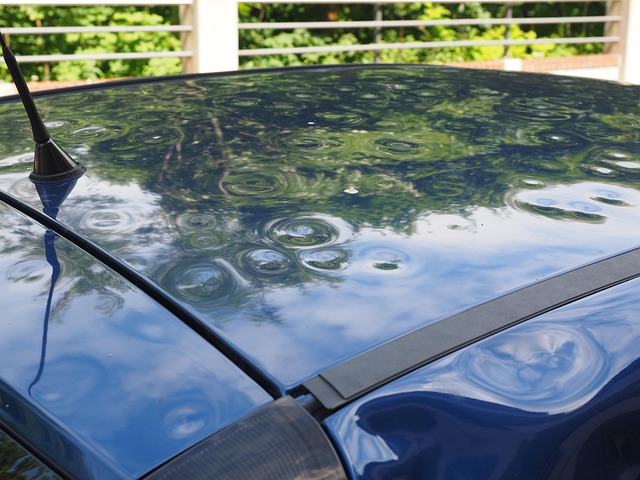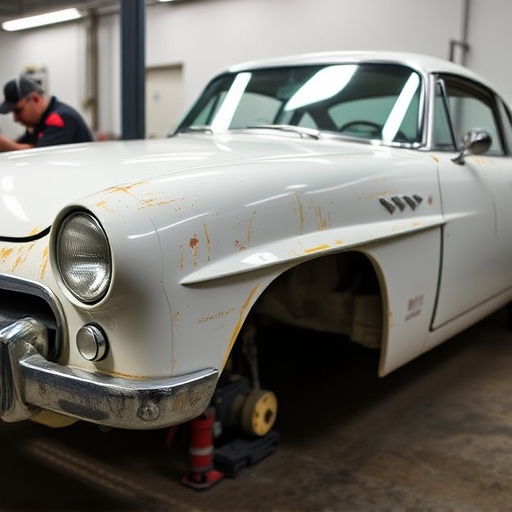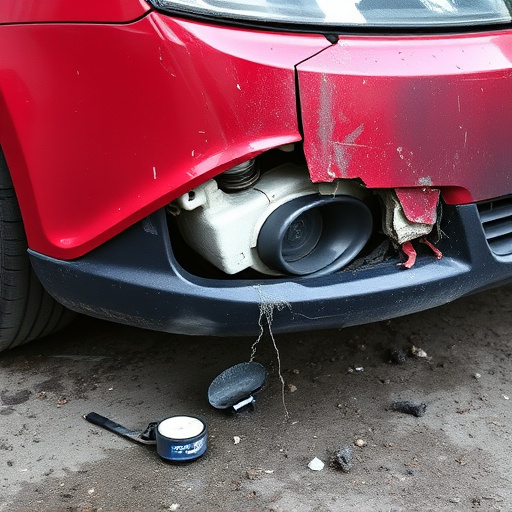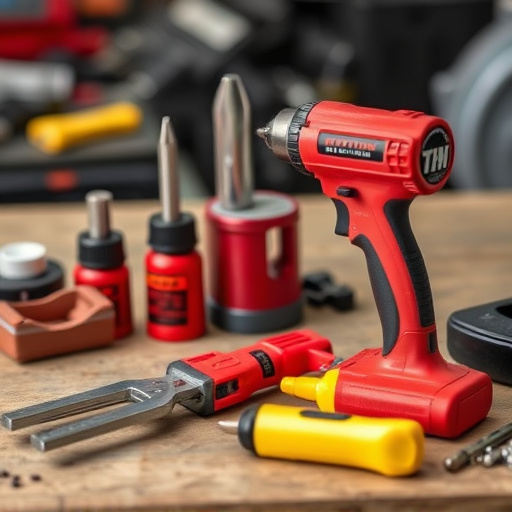Mercedes electronic stability repair is a specialized service that focuses on fixing crucial safety systems like ESC (Electronic Stability Control) and ABS (Anti-lock Braking System), which work together to prevent collisions and enhance handling. Issues can arise due to sensor failures, electrical problems, or mechanical malfunctions, leading to handling problems and reduced traction control. Repairs require advanced diagnostics, root cause identification using specialized tools, and precise calibration to ensure the ESC and ABS systems operate harmoniously with other vehicle components. Top-tier parts, techniques, and adherence to manufacturer guidelines are essential for optimal performance and enhanced safety, meeting high standards set by luxury collision repair services.
Mercedes electronic stability repair is a critical aspect of maintaining top-tier vehicle performance. This article delves into the intricate integration of Mercedes’ Electronic Stability Control (ESC) and Anti-lock Braking System (ABS), essential safety features that work in harmony to stabilize and control your vehicle. By understanding these systems and common issues, you’ll learn effective repair strategies to ensure optimal integration, enhancing both safety and driving experience.
- Understanding Mercedes Electronic Stability Control (ESC) and Anti-lock Braking System (ABS) Integration
- Common Issues and Causes of Mercedes ESC and ABS Malfunctions
- Effective Repair Strategies for Optimal Integration of Mercedes Electronic Stability Systems
Understanding Mercedes Electronic Stability Control (ESC) and Anti-lock Braking System (ABS) Integration

Mercedes Electronic Stability Control (ESC) and Anti-lock Braking System (ABS) are integral components that work in harmony to ensure optimal vehicle handling and safety during critical driving situations. ESC uses sensors to monitor wheel speed, steering input, and other factors to detect loss of control or skidding. Upon detection, it intervenes by individually applying brakes and adjusting engine power to help stabilize the vehicle and prevent a collision. ABS, on the other hand, is designed to prevent wheel lock-up during hard braking, ensuring maximum brake effectiveness and allowing drivers to maintain control.
When performing Mercedes electronic stability repair, it’s crucial to understand this seamless integration between ESC and ABS. Skilled technicians must ensure that any repairs or adjustments made to one system do not compromise the functionality of the other. This involves meticulous diagnostics, precise calibration, and adherence to manufacturer guidelines to preserve the vehicle’s safety and handling capabilities, ultimately enhancing the overall driving experience and peace of mind for Mercedes owners. Moreover, collision repair services focusing on these systems require specialized tools and knowledge to address issues without affecting the vehicle’s advanced safety features, aligning with the high standards set by auto body services specializing in luxury vehicles like Mercedes.
Common Issues and Causes of Mercedes ESC and ABS Malfunctions

Mercedes vehicles, renowned for their luxury and advanced technology, are equipped with sophisticated systems like Electronic Stability Control (ESC) and Anti-lock Braking System (ABS) to enhance safety. However, these integrated systems can encounter issues due to various factors. Common problems range from sensor failures, where faulty or worn sensors can disrupt the vehicle’s ability to accurately monitor wheel speed and vehicle dynamics, leading to instability during cornering or sudden maneuvers. Another frequent cause is electrical malfunctions, such as short circuits or loose connections within the complex network of ESC and ABS components, causing erratic behavior and potential safety hazards.
Mechanical failures within the actuators or pumps responsible for applying braking force individually to each wheel can also trigger ESC and ABS malfunctions. These issues may manifest as vague handling, loss of traction control, or even sudden locking up of individual wheels during normal driving conditions. Proper Mercedes electronic stability repair is crucial to address these problems effectively. Visiting a reliable auto collision center or auto repair shop with expertise in Mercedes models ensures accurate diagnostics, leveraging advanced tools to pinpoint the root cause, and implementing effective vehicle body repair solutions to restore optimal ESC and ABS integration.
Effective Repair Strategies for Optimal Integration of Mercedes Electronic Stability Systems

For optimal integration of Mercedes electronic stability systems, a holistic approach to Mercedes electronic stability repair is essential. This involves not just repairing the Electronic Stability Control (ESC) and Anti-lock Braking System (ABS) modules but also ensuring their seamless communication with other vehicle systems. A competent vehicle body shop must employ advanced diagnostic tools to identify any underlying issues that could compromise the ESC and ABS integration, such as faulty sensors or wiring damage.
Effective repair strategies should address these potential problems simultaneously, utilizing top-notch auto body repair techniques and parts. By carefully calibrating the systems post-repair, ensuring precise sensor readings, and verifying the integrity of signal pathways, a car dent repair expert can guarantee that the Mercedes electronic stability systems operate in harmony, enhancing overall vehicle safety and performance.
Mercedes electronic stability repair is a complex yet essential process that ensures the optimal integration of ESC (Electronic Stability Control) and ABS (Anti-lock Braking System). By understanding their intricate relationship and addressing common issues promptly, vehicle owners can maintain superior safety standards. Effective repair strategies not only fix malfunctions but also enhance the overall performance of these critical systems, providing drivers with peace of mind on the road.














